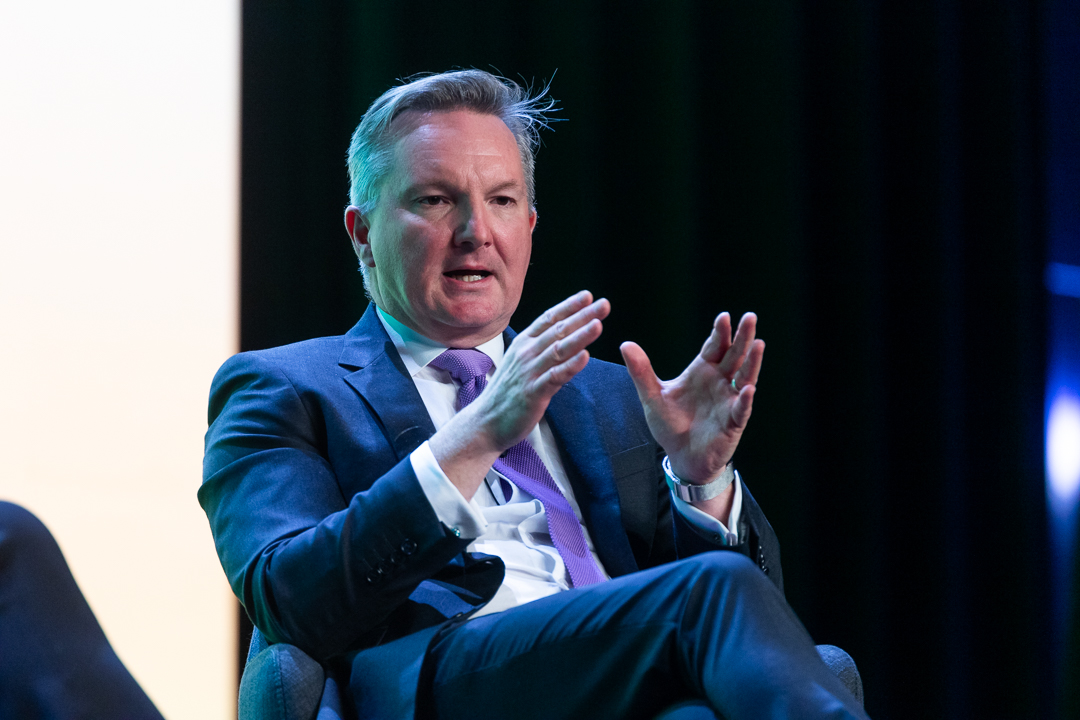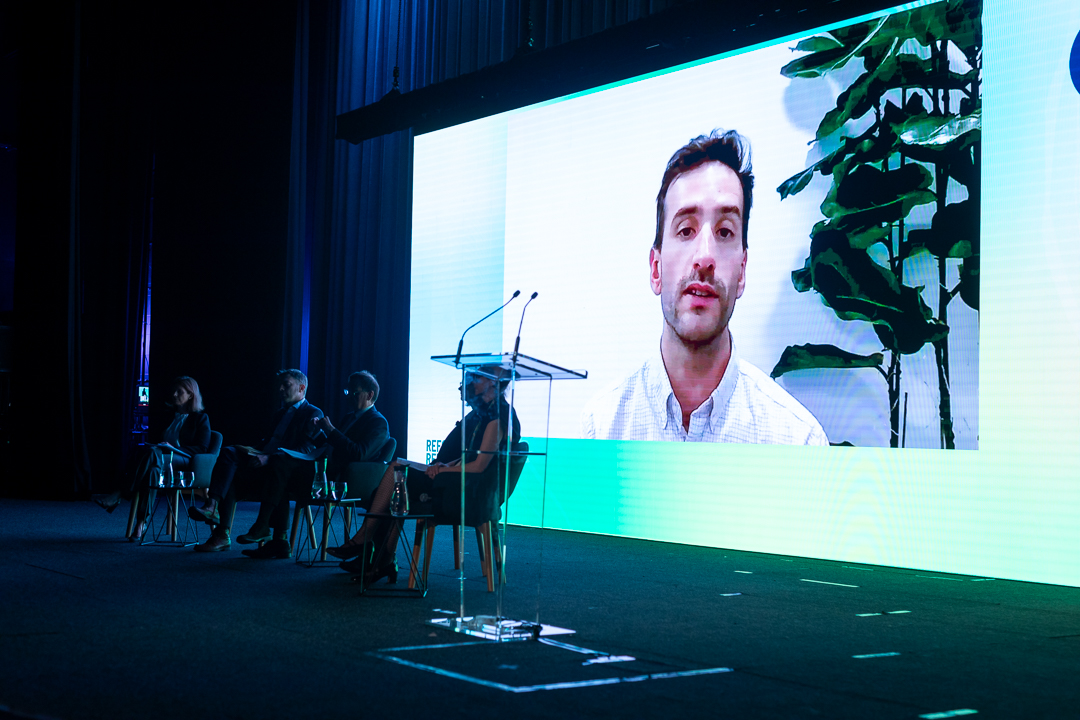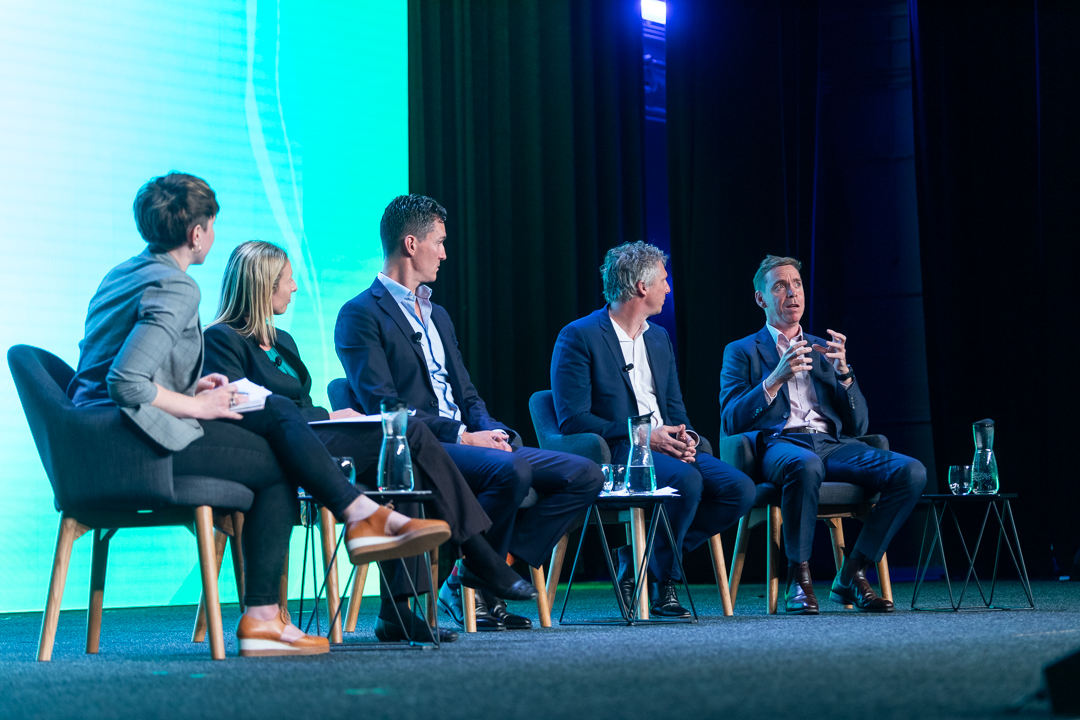The World Trade Organisation is now closely examining how the global trading system can speed decarbonisation and reduce the associated costs, a senior World Trade Organisation (WTO) official told the Carbon Market Institute’s (CMI) Australasian Emissions Reduction Summit today.
Interviewed by the Institute’s chief executive John Connor, WTO Deputy Director-General Jean-Marie Paugam said there had for too long been “a governance trap” within the UN, with the WTO not adequately talking about climate, and the UN climate secretariat not adequately discussing trade.
The two organisations were “a little bit like timid lovers who did not dare look at each other for a long time, or were observers from a distance,” Paugam said.
This distance caused major problems because – with the best of intentions – uncoordinated and unilateral measures on trade and climate have proliferated, he said.
However, over the past three years the two organisations have started to work more cooperatively, and this year’s UN climate talks in Dubai will for the first time feature a day themed around trade issues, Paugam noted.
The WTO is also raising the profile of climate change in its internal trade discussions and negotiations, he added.
A more collaborative approach on trade and climate will help to minimise the costs of decarbonisation, he said, adding that trade negotiators also have an important role to play in phasing out trade-distorting subsidies that are harmful to the climate and the environment, Paugam said.
This in turn will relieve pressure on government budgets, by reining in expenditure that supports harmful activities, he said.
Asked about the EU’s CBAM carbon border tariff, a version of which is under consideration by the Australian government, Paugam said it was such a new approach that for some countries “the first reaction was really a little bit of puzzlement.”
There was also concern among some countries that it could become a tool for protectionism or discrimination, he added.
However, the EU has clearly stated that it has no intention of using the CBAM in this way, he said.
Discussion about the role and impact of CBAMs is now occurring within the WTO, “and this is a place where these debates need to happen,” Paugam said.
Commenting on the emergence of “climate clubs”, such as the one involving G7 countries and Australia, Paugam said it was important to be clear about their purpose.
Carbon clubs – in which like-minded countries cooperate to take ambitious action – should be “a building block” for faster decarbonisation, he said.
However, care is needed to ensure they don’t become a tool to exclude countries from participating in joint efforts to decarbonise, he said.
A Media Kit with a transcript of the interview and other images is available here.
About the 10th Annual Australasian Emissions Reduction Summit
The Carbon Market Institute’s annual Emissions Reduction Summit is one of the largest and longest-running business and climate action events in the region and is taking place in Sydney today and tomorrow (September 14 and 15).
In the midst of a transformational 12 months for the global economy as it continues to navigate the escalating challenges, scrutiny and real-life impacts of climate change, this year’s Summit will provide a timely pulse-check on business progress, as well as government ambition and international action as leaders prepare for COP28 later this year.
About the Carbon Market Institute
The Carbon Market Institute (CMI) is a member-based institute accelerating the transition towards a negative emissions, nature positive world. It champions best practice in carbon markets and climate policy, and its over 150 members include primary producers, carbon project developers, Indigenous organisations, legal, technology and advisory services, insurers, banks, investors, corporate entities and emission intensive industries. The positions put forward constitute CMI’s independent view and do not purport to represent any CMI individual, member company, or industry sector.



